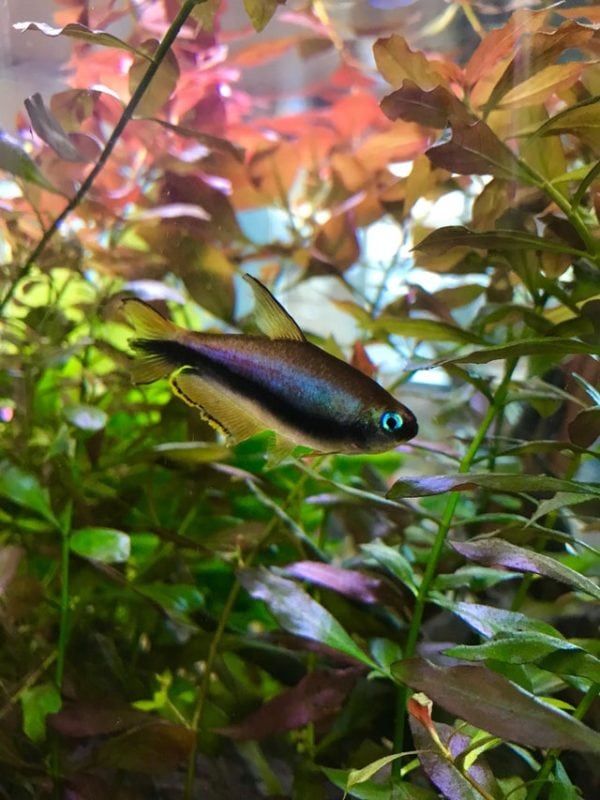Fish Seizure
Have you ever witnessed a fish having a seizure? It can be a shocking and distressing experience, leaving you wondering what caused it and what you can do to help. In this article, we'll explore the topic of fish seizure, its causes, symptoms, and treatment options, so that you can be better prepared if it ever happens to your beloved pet fish.
The Pain Points of Fish Seizure
Seeing a fish having a seizure can be a painful and traumatic experience, not just for the fish but for the owner as well. It's not uncommon for fish owners to feel helpless and frustrated as they watch their pet suffer from this condition without knowing what to do.
What is Fish Seizure?
Fish seizure is a condition that causes involuntary muscle contractions and spasms in fish. It can be caused by various factors, including water quality issues, environmental stress, genetic disorders, and infectious diseases. Some common symptoms of fish seizure include rapid darting movements, erratic swimming behavior, loss of balance, and gill movement.
Causes of Fish Seizure
There are many causes of fish seizure, and it can be challenging to identify the specific cause without proper diagnosis. Some common causes of fish seizure include water temperature fluctuations, overfeeding, overcrowding, poor water quality, and exposure to toxic substances. In some cases, fish seizure might be a symptom of an underlying disease, such as parasitic infections, bacterial or viral infections.
My Personal Experience with Fish Seizure
As a fish owner, I've had my fair share of experiences with fish seizure. One of my favorite pet fish, a goldfish, suddenly started having episodes of erratic swimming behavior and losing balance in the water. At first, I thought it was just stress-related, but the symptoms persisted despite my best efforts to create a calming environment. After consulting with a veterinarian, I learned that my fish had a genetic disorder that caused seizures.
While I couldn't cure this condition, I was able to manage it by making some changes in the aquarium, such as reducing water movement and adding some natural plants. I also made sure to monitor the water quality regularly and ensure that my fish was getting a balanced diet.
Treatment Options for Fish Seizure
The treatment of fish seizure depends on the underlying cause and severity of the condition. If fish seizure is caused by poor water quality, it can be treated by performing regular water changes and ensuring that the water parameters are within the optimal range. In cases where fish seizure is caused by a genetic disorder or infectious disease, medication or surgical interventions might be required.
Preventing Fish Seizures
The best way to prevent fish seizure is to provide a stress-free and healthy environment for your fish. This includes maintaining an optimal water temperature, regular water changes, and ensuring that the aquarium is not overcrowded. It's also important to feed your fish a balanced and appropriate diet and avoid overfeeding.
Question and Answer
1) Can fish seizure be a sign of a more severe problem?
Yes, fish seizure can be a symptom of an underlying health problem, such as parasitic infections, bacterial or viral infections.
2) How can fish owners manage fish seizure?
Fish owners can manage fish seizure by providing a stress-free environment, monitoring water quality, and ensuring that their fish is getting a balanced diet. In some cases, medication or surgical intervention might be necessary.
3) What can be the long-term effects of fish seizure on a pet fish?
The long-term effects of fish seizure on a pet fish can vary depending on the underlying cause and severity of the condition. In some cases, fish seizure might be a sign of an underlying disease or genetic disorder that can affect the fish's overall health and lifespan.
4) Can fish seizure be prevented?
Yes, fish seizure can be prevented by providing a stress-free and healthy environment for your fish, monitoring water quality regularly, and avoiding overfeeding.
Conclusion
While fish seizure can be a distressing and challenging condition to manage as a fish owner, it's essential to stay informed about the causes, symptoms, and treatment options to ensure that you can provide the best care for your pet fish. By maintaining a healthy and stress-free environment and promptly addressing any signs of fish seizure, you can help your fish to live a long and happy life.
Gallery
Clown Fish Seizure???!! - YouTube

Photo Credit by: bing.com / fish seizure
DVIDS - Images - Fish Seizure

Photo Credit by: bing.com / seizure anchorage ak
My Fish Having Seizure - YouTube

Photo Credit by: bing.com / seizure fish
Can Fish Have Seizures? Let's Find Out! - The Aquarium Guide

Photo Credit by: bing.com /
Fish Having A Seizure - YouTube

Photo Credit by: bing.com / fish having seizure
